Charles E W Bean, Diaries, AWM38 3DRL 606/277/1 - 1926-1939 - Part 8
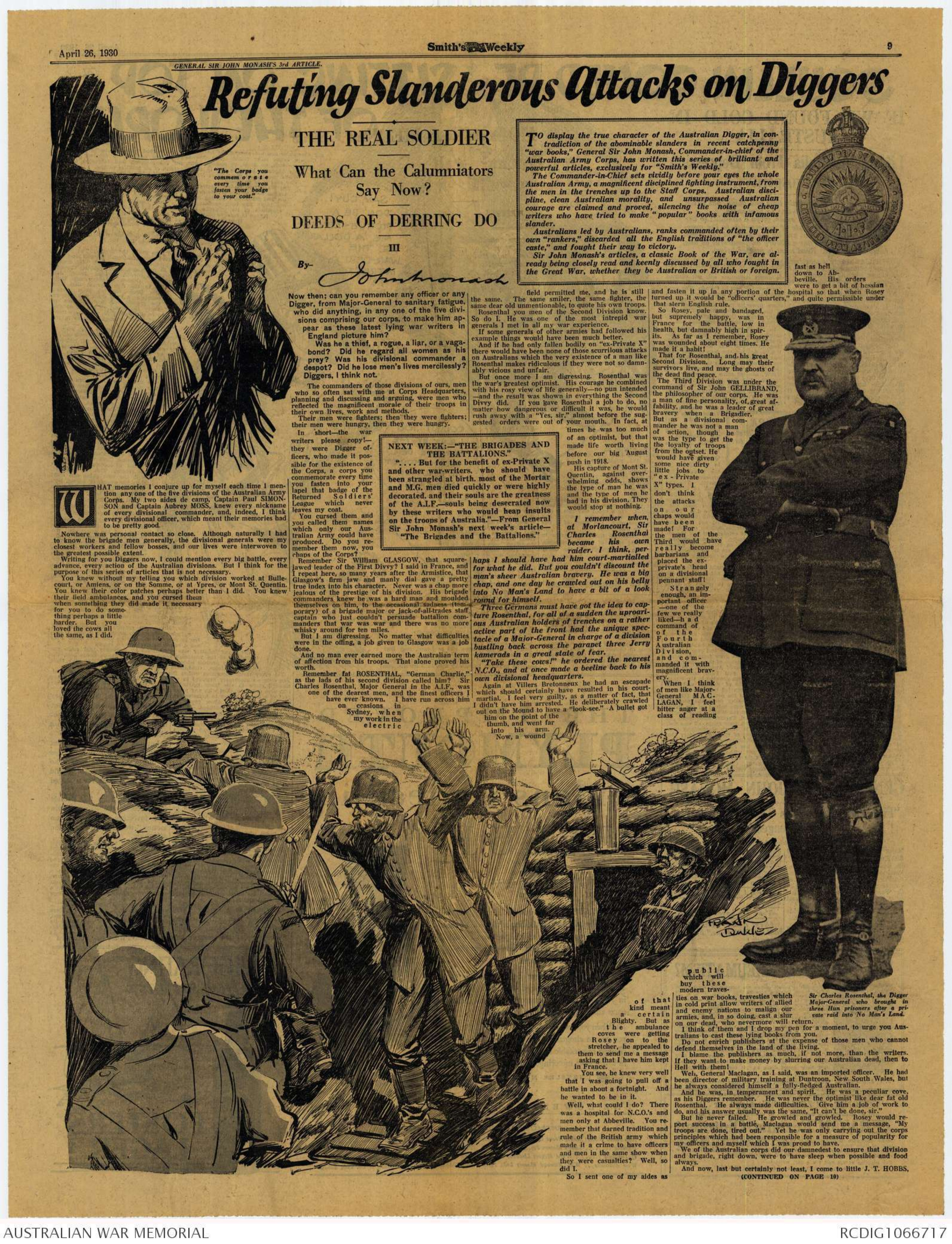
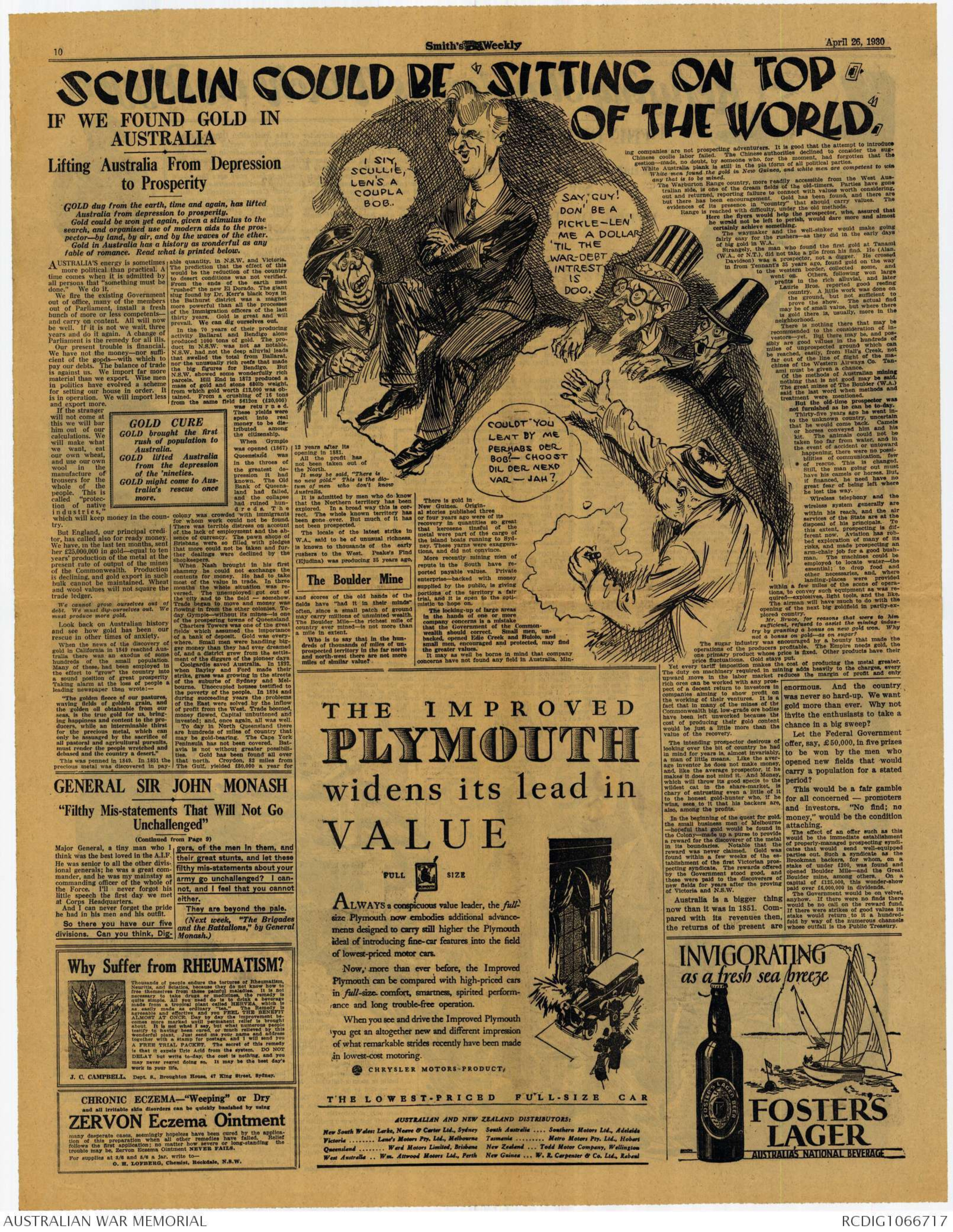
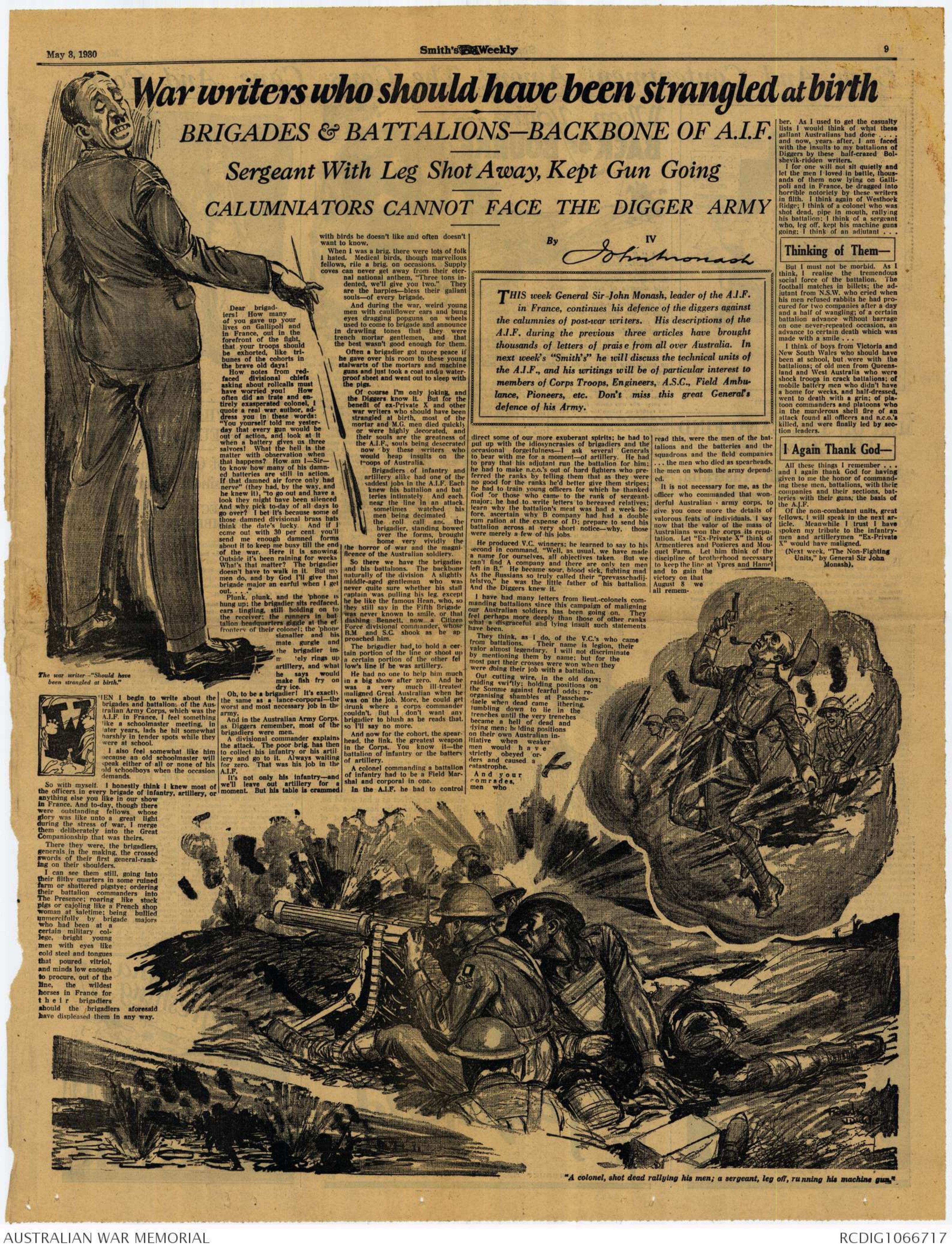
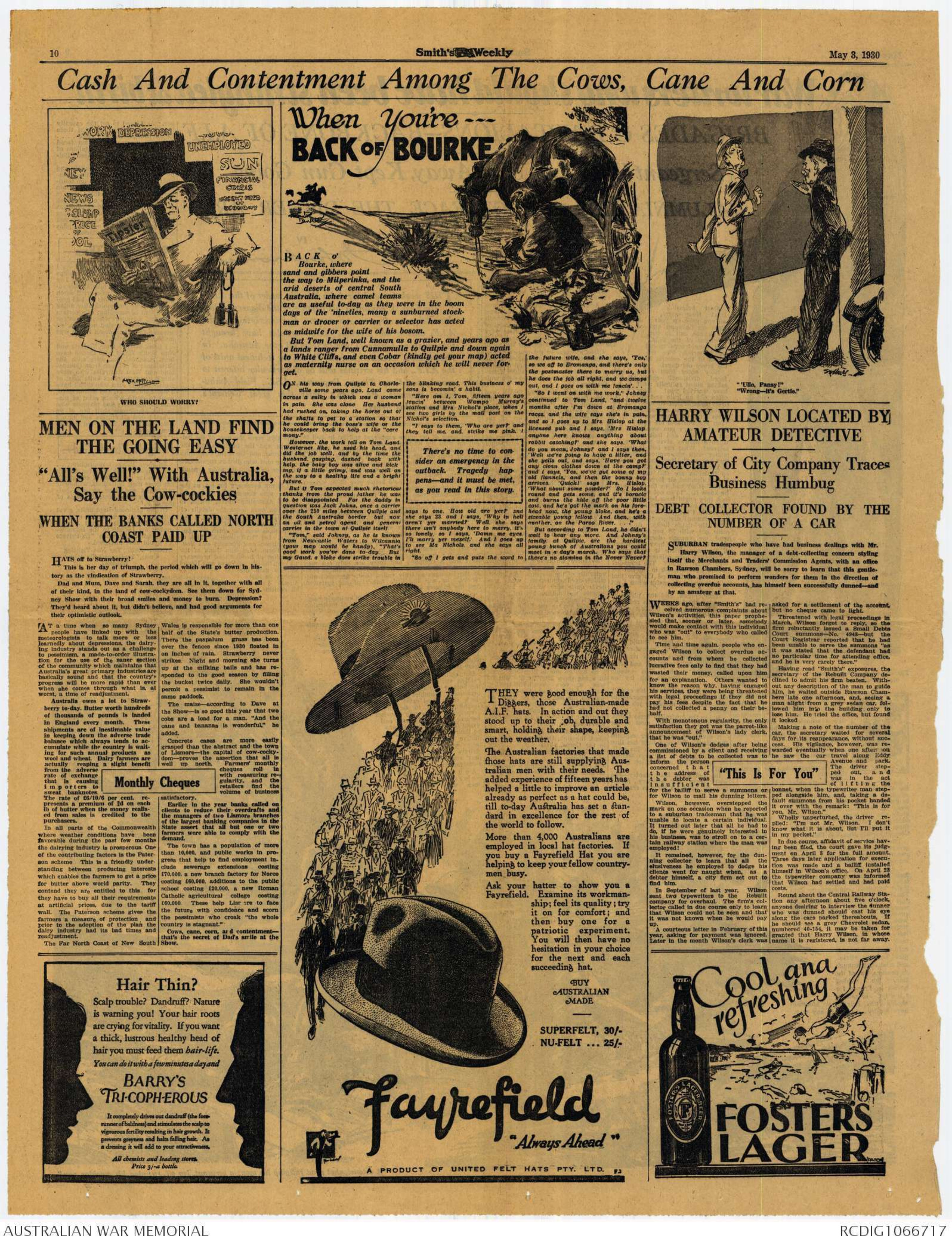
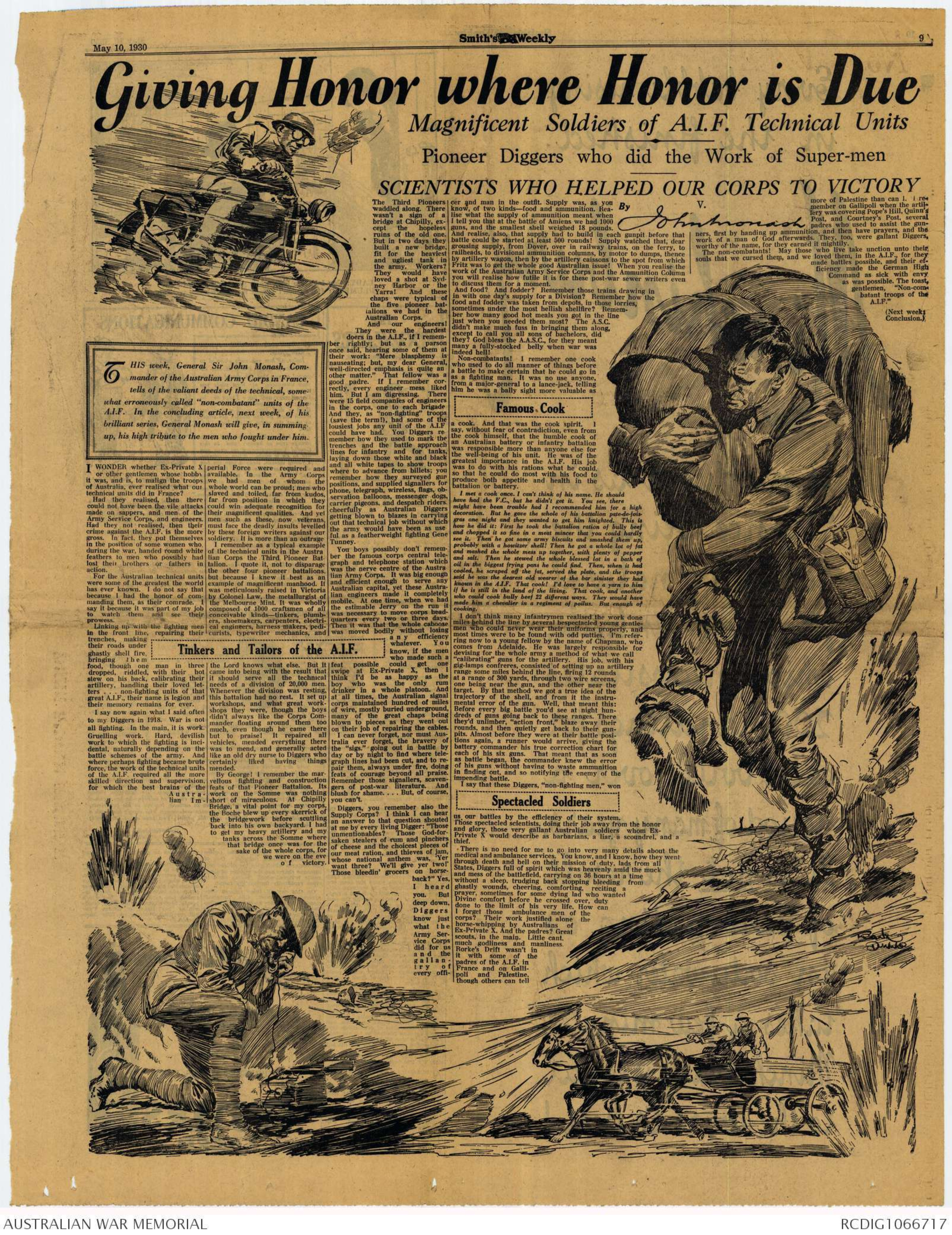
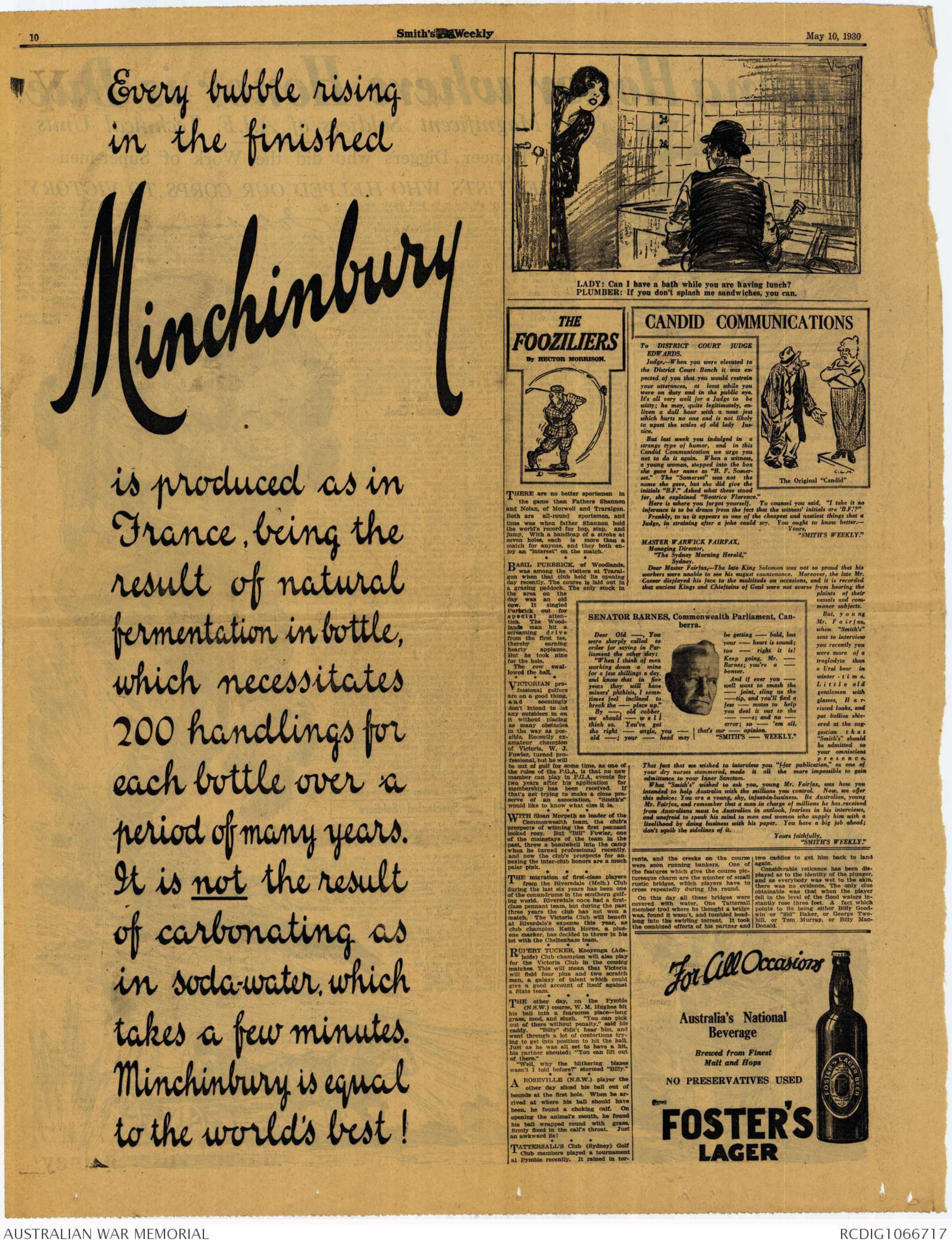
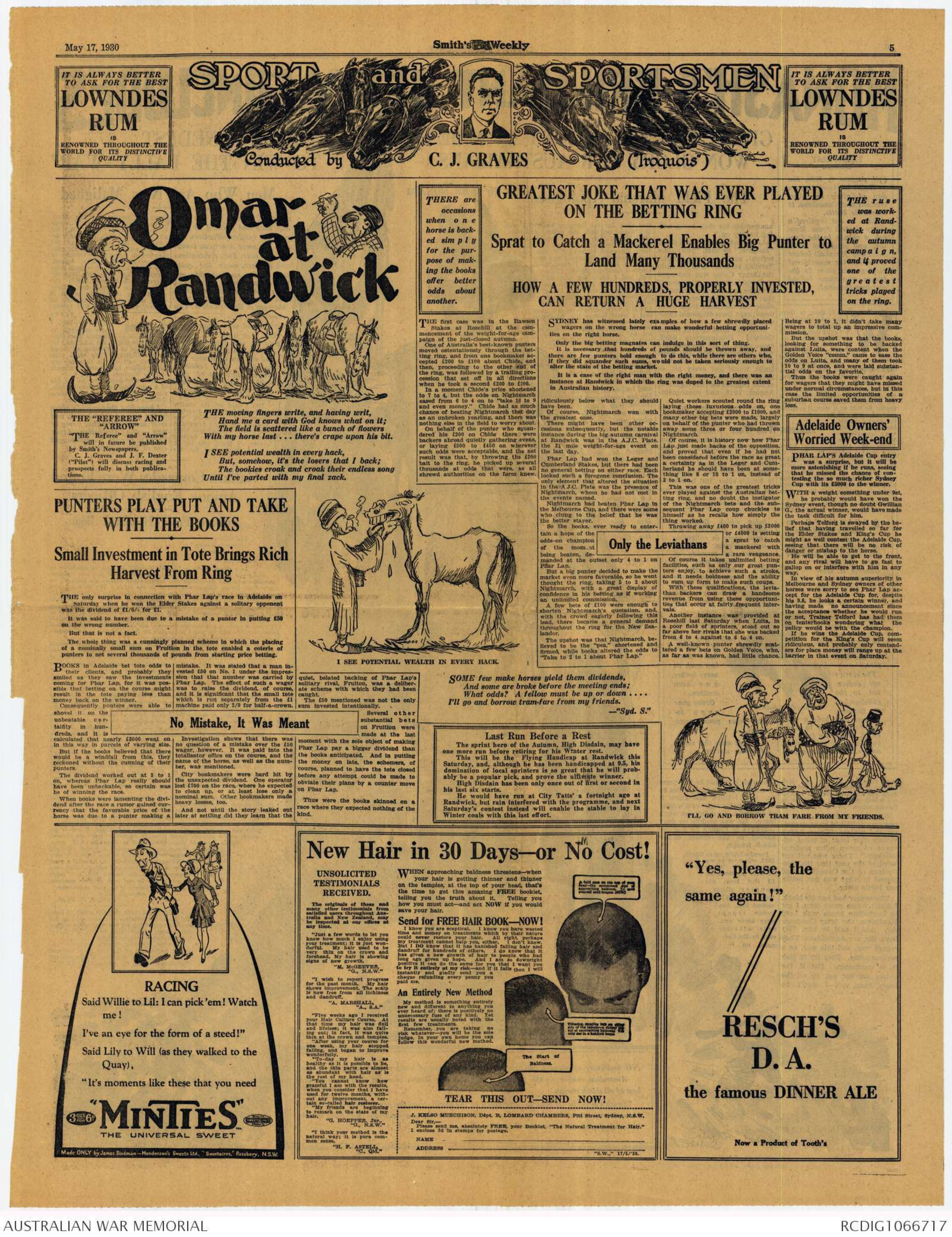
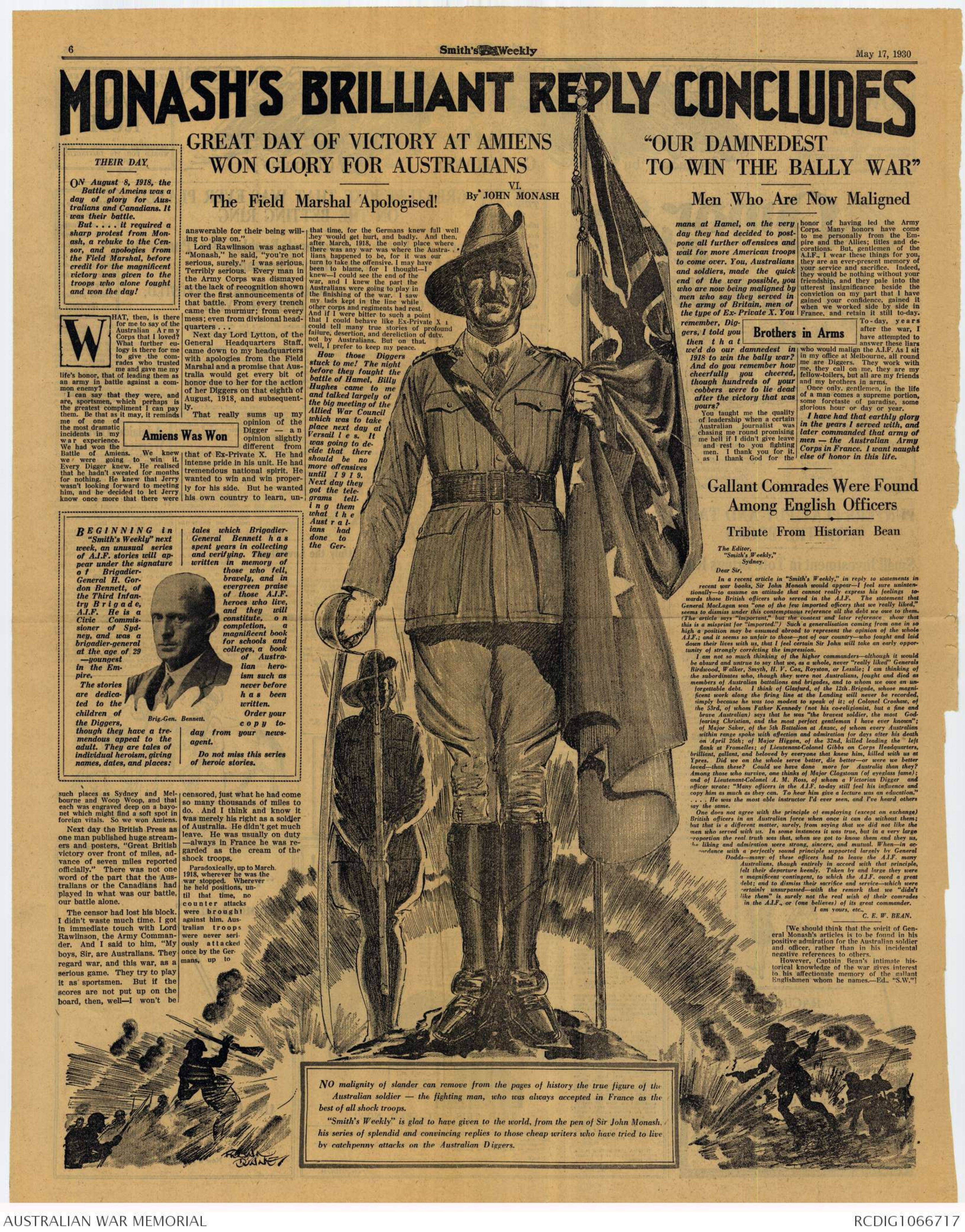
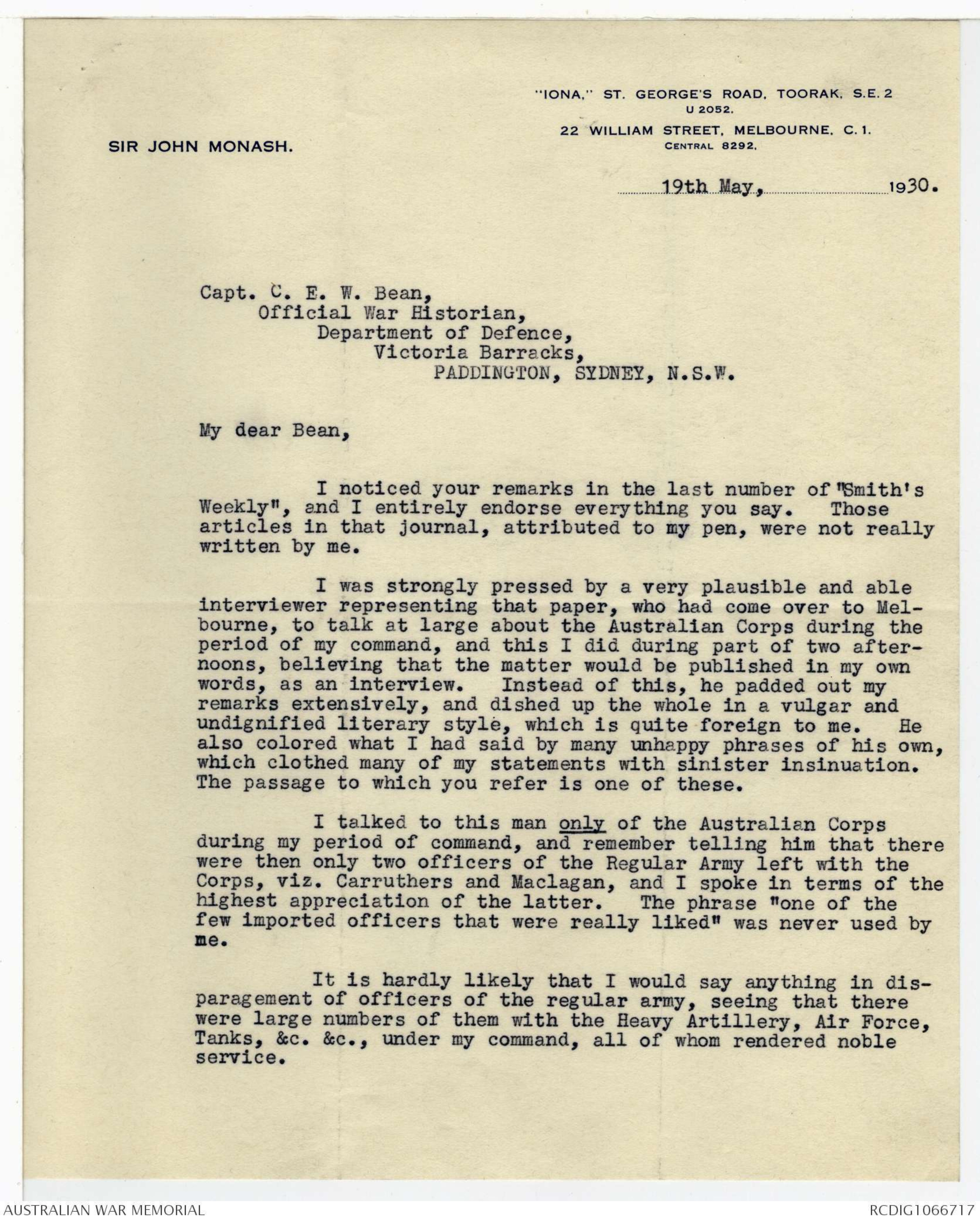
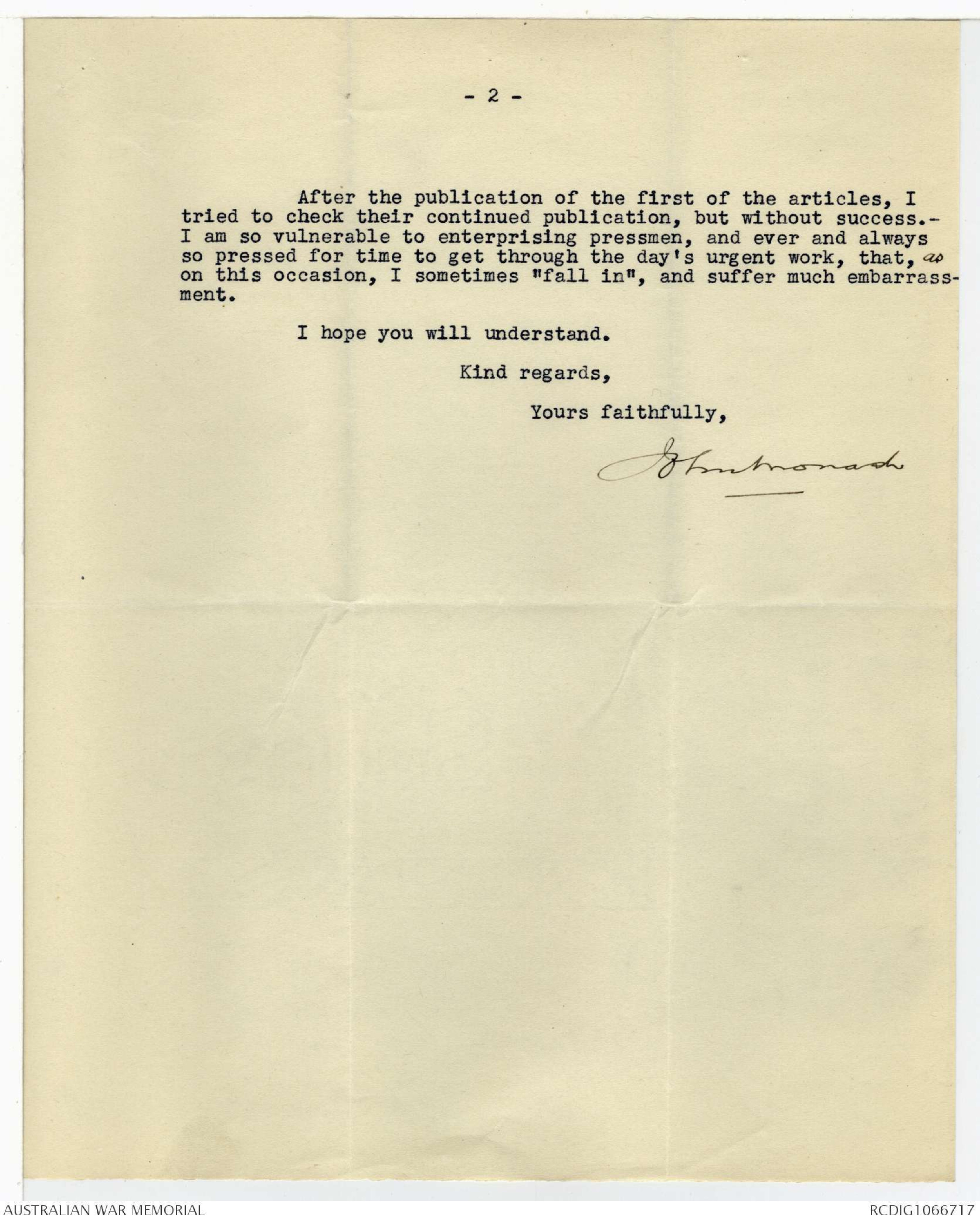
April 26, 1930 SMITH’S WEEKLY 9
REFUTING SLANDEROUS ATTACKS ON DIGGERS
Newspaper article- see original document
10 SMITH’S WEEKLY April 26, 1930
SCULLIN COULD BE SITTING ON TOP
OF THE WORLD
IF WE FOUND GOLD IN
AUSTRALIA
Newspaper article - see original document
May 8, 1930 SMITH’S WEEKLY 9
War Writers who should have been strangled at birth
BRIGAD’E’S AND BATTALIONS - BACKBONE OF A.I.F.
Newspaper article - see original document
10 SMITH’S WEEKLY May 3, 1930
Cash And Contentment Among The Cows, Cane And Corn
Newspaper article - see original document
May 10, 1930 SMITH’S WEEKLY 9
Giving Honor where Honor is Due
Magnificent Soldiers of A.I.F. Technical Units
Newspaper article- see original document
10 SMITH’S WEEKLY May 10, 1930
Every bubble rising
is the finished
Minchinbury
Newspaper article - see original document
May 17,1930 SMITH’S WEEKLY 5
SPORT and SPORTSMEN
Newspaper article - see original document
6 SMITH’S WEEKLY May 17, 1930
MONASH’S BRILLIANT REPLY CONCLUDES
GREAT DAY OF VICTORY AT AMIENS
WON GLORY FOR AUSTRALIANS
Newspaper article - see original document
"IONA". ST. GEORGE,S ROAD, TOORAK, S.E.2
U 2052.
22 WILLIAM STREET, MELBOURNE. C.I.
CENTRAL 8292.
19th May, 1930
SIR JOHN MONASH
Capt. C. E. W. Bean
Official War Historian,
Department of Defence,
Victoria Barracks,
PADDINGTON, SYDNEY, N.S.W.
My dear Bean,
I noticed your remarks in the last number of "Smith’s
Weekly", and I entirely endorse everything you say. Those
articles in that journal, attributed to my pen, were not really
written by me.
I was strongly pressed by a very plausible and able
interviewer representing that paper, who had come over to Melbourne,
to talk at large about the Australian Corps during the
period of my command, and this I did during part of two afternoons,
be that the matter would be published in my own
words, as an interview. Instead of this, he padded out my
remarks extensively, and dished up the whole in a vulgar and
undignified literary style, which is quite foreign to me. He
also colored what I had said by many unhappy phrases of his own,
which clothed many of my statements with sinister insinuation.
The passage to which you refer is one of these.
I talked to this man only of the Australian Corps
during my period of command, and remember telling him that there
were then only two officers of the Regular Army left with the
Corps, viz. Carruthers and Maclagan, and I spoke in terms of the
highest appreciation of the latter. The phrase "one of the
few imported officers that were really liked" was never used by
me.
It is hardly likely that I would say anything in disparagement
of officers of the regular army, seeing that there
were large numbers of them with the Heavy Artillery, Air Force,
Tanks, &c. &c., under my command, all of whom rendered noble
service.
- 2 -
After the publication of the first of the articles, I
tried to check their continued publication, but without success.-
I am so vulnerable to enterprising pressmen, and ever and always
so pressed for time to get through the day's urgent work, that, as
on this occasion, I sometimes "fall in", and suffer much embarrassment
I hope you will understand.
Kind regards,
Yours faithfully,
John Monash
 Sandy Mudie
Sandy MudieThis transcription item is now locked to you for editing. To release the lock either Save your changes or Cancel.
This lock will be automatically released after 60 minutes of inactivity.